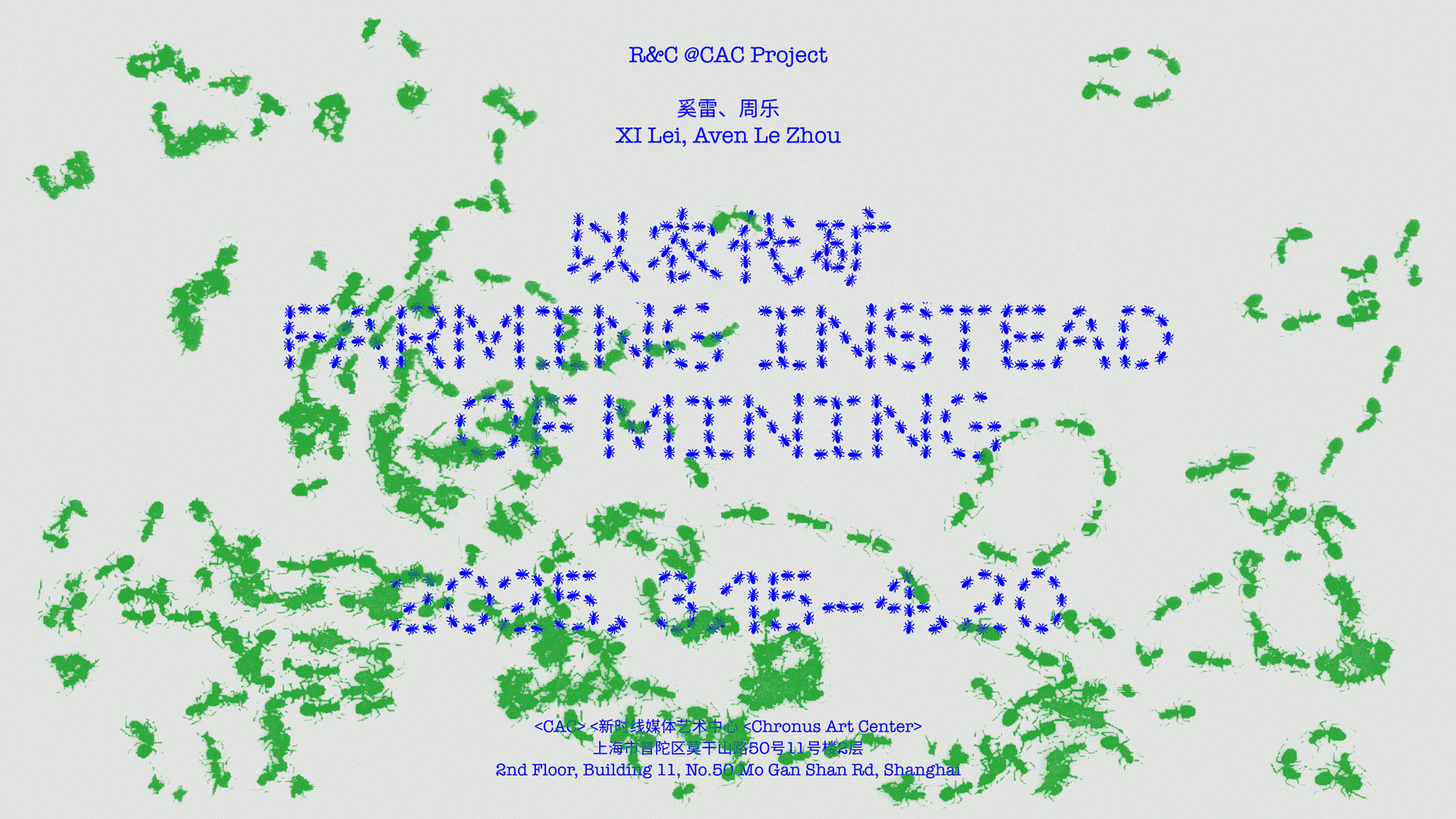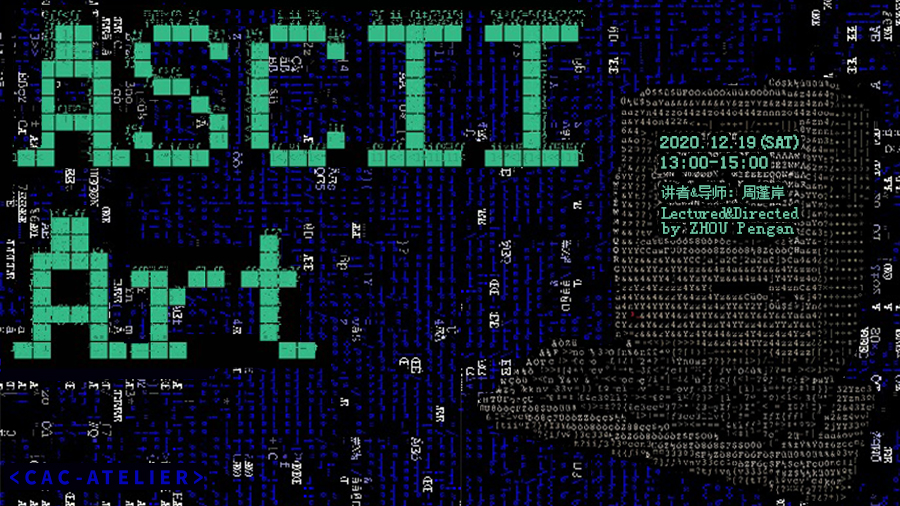Chronus Art Center is pleased to present My Lagerstatte, an exhibition by the American artist Michael Joaquin Grey.
My Lagerstatte is composed of three intimately related cinematic works that resonate together to create a stunning audiovisual epic of a voyage to the heart of the solar system for a post-mortem conservation of cultural relics immortalized in media objects and technical inventions of the past several hundred years. These objects characterize the immense creativity, as well as the inherent obsolescence and transience, of the technologically empowered material culture of the modern world. The works unfold the mythology-inspired pedagogical continuum of observing (pre-museum), collecting (museum) and preserving (post-museum), a triad that the artist has developed as a witness and for the longevity of civilization beyond the limits of history and the finitude of the human species, toward a futurity that extends into cosmic time.
The large wall projection “The Sanctuary Orrery” is an eschatological work, a personal and collective model of the solar system that has continued to evolve from Grey’s original cosmological visualization engine “So What Moon Calendar” from 2005. A generative 3D environment, “The Sanctuary Orrery”is a computational cinema in which the sound is generated from the artist’s spatial libretto to create the sun, moon, earth and the rest of the solar system. The animation was inspired by the approaching end of the Mayan calendar cycle and is a journey to the end or the beginning of a new phase of civilization, traveling to the center of the sun and then back through the planets to the edge of the asteroid belt. These planets and celestial bodies are animated by the sounds, songs and speeches of a collective past. Audio relics from the late-twentieth century guide us through the galaxy and into a realm of social and historical consciousness.
On the other side of the virtual solar system journey, presented here on two 65 inches HD displays, revolves the “Umwelt Belt.” “Umwelt Belt” (German: environment) is the first post-museum collection launched in the “The Sanctuary Orrery” located just beyond the planet Mars. The live installation features a collection of objects that orbit in a mobius strip pattern; a history stream from our cultural record.
“Umwelt Belt” develops a sanctuary, a new space to observe and contemplate the development and collective mythology of media from the birth of the printing press to the present. By re-situating the“media object” into a 3D virtual extraterrestrial environment, a new critical distance and medium for re-reading our history and material culture may be generated.
Over 100 objects from the history of media make up this orbiting constellation including the Gutenberg press, a microscope, telescope, camera, microphone, light bulb, Ford Model T car, radio, television, atomic bomb, Sputnik satellite, Wright plane, military drone, Hubble telescope, electron microscope, iPhone, Xerox 914 copier, transistor, lunar module, Mars rover, Apple Power Book, computer, floppy disk, flash drive, and an electric guitar. This collection of objects captures the culture’s consciousness in a post-museum cosmos.
“Primordial Soup: The Second Accumulation” is a live computational work. It is a lagerstatte of perpetual media content layered over time to create a percolating tar field constantly churning and accumulating. It is with this conceptual purity and formal laconism that we venture into the numerous permutations of its emergence.
“Spatial Libretto for the Solar System,” 2012, is a graphic representation of the sounds that generate the objects of the artist’s virtual model of the solar system, the “Sanctuary Orrery.” The music and texts within this computational cinema work create the sun, planets and objects of a subjective media culture cosmology.
About the Artist:
For the past thirty years, Michael Joaquin Grey (b. 1961, Los Angeles, California lives in San Francisco and New York City) has been investigating the development of life, language and form in complex and natural systems; how animate and inanimate systems originate, grow and decay. Grey’s cosmology seeks to capture and collect critical moments in natural phenomena and culture. Grey reminds us of the importance, so often lost in contemporary society, of primary observation for learning. Grey’s practice exists as a form of social sculpture that enables us to explore the origins of our development from the bottom up and the implications for how we create our pedagogy.
Grey’s work has been exhibited and collected internationally including: the Museum of Modern Art, New York; the Museum of Contemporary Art Los Angeles; the Whitney Museum of American Art, New York; The New Museum of Contemporary Art, New York; Serpentine Gallery, London; Museum of Contemporary Art, Chicago; P.S. 1 Contemporary Art Center, New York; Walker Art Center; Kunstverein Hannover; DOX Center for Contemporary Art, Prague; Sundance Film Festival; Berkeley Art Museum, California; National Art Museum of China, Beijing; the New Art Trust: TATE Modern, and the San Francisco Modern.
Grey’s work has been the subject of solo gallery exhibitions including Lisson Gallery, London; Barbara Gladstone Gallery, New York; Regen Projects, Los Angeles and solo museum exhibitions at New York, P.S. 1/MoMA curated by Klaus Biesenbach and the Gemaldegalerie, Berlin, Staatliche Museen (National Museum) curated by Stepan Weppelmann.
About the Series:
My Lagerstatte is the inaugural exhibition in a series of screen-based works organized by the Chronus Art Center. Conceived by ZHANG Ga, who has recently taken the helm of artistic direction at CAC, this exhibition series examines, through seven international artists’ projection works, each presented in a month-long solo exhibition, dynamically generated audiovisual systems that artists have custom-made, real-time transmitted images which demand protocols other than those readily available, idiosyncratic animation techniques for which given rules will be rewritten, and subject matters estranged from the populist safe haven. The artists presented in this series often exploit an algorithmic logic distinct from the predominant language that speaks the parlance of video art—software presets and editing routines for visual manipulation and content authoring—thereby disrupting and sabotaging the economy and the ideology of image production implicit in the very tools and means that produce narrative and construct meaning. In doing so, they have developed a new aesthetic sensibility beyond the received notion of video art as such , extending the rich tradition of media art seen in the pioneering experiments of Walter Ruttmann and Dziga Vertov of the 1920s; by the canonical works of Michael Snow, the Vasulkas and Nam June Paik, to name just a few, of the mid-century; to the digital contemporary, and opened new potentials for tending individuated perceptual spaces that can acculturate the spectacles of cosmic magnitude and the facticity of the everyday, imagined or otherwise.
Series Artists:







